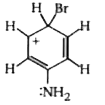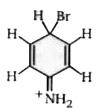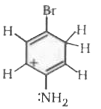Which one of the following solutions with same concentrations is most basic?
NaHCO3
HCl
KOH
Na2CO3
The correct Answer is:C
To determine which of the following solutions with the same concentrations is the most basic, we need to analyze the behavior of each solution in water and the amount of hydroxide ions (OH⁻) they produce. The solutions we are considering are:
1. Sodium Bicarbonate (NaHCO₃)
2. Hydrochloric Acid (HCl)
3. Potassium Hydroxide (KOH)
4. Sodium Carbonate (Na₂CO₃)
Step 1: Analyze Sodium Bicarbonate (NaHCO₃)
When sodium bicarbonate is dissolved in water, it dissociates as follows:
NaHCO3→Na++HCO−3
The bicarbonate ion (HCO₃⁻) can react with water to produce hydroxide ions:
HCO−3+H2O⇌H2CO3+OH−
This means that sodium bicarbonate produces some OH⁻ ions, but not in a high concentration.
Step 2: Analyze Hydrochloric Acid (HCl)
When HCl is dissolved in water, it completely dissociates into:
HCl→H++Cl−
Since HCl is a strong acid, it does not produce any OH⁻ ions. Therefore, it is not basic at all.
Step 3: Analyze Potassium Hydroxide (KOH)
When KOH is dissolved in water, it dissociates completely:
KOH→K++OH−
For a 1M solution of KOH, it produces 1M of OH⁻ ions. This indicates that KOH is a strong base.
Step 4: Analyze Sodium Carbonate (Na₂CO₃)
When sodium carbonate is dissolved in water, it dissociates as follows:
Na2CO3→2Na++CO2−3
The carbonate ion (CO₃²⁻) can react with water to produce hydroxide ions:
CO2−3+H2O⇌HCO−3+OH−
For a 1M solution of Na₂CO₃, it produces 2M of OH⁻ ions because each carbonate ion can generate one hydroxide ion.
Step 5: Compare the OH⁻ Concentrations
- Sodium Bicarbonate (NaHCO₃): Produces some OH⁻ (not quantified, but less than 1M).
- Hydrochloric Acid (HCl): Produces 0M OH⁻ (not basic).
- Potassium Hydroxide (KOH): Produces 1M OH⁻.
- Sodium Carbonate (Na₂CO₃): Produces 2M OH⁻.
Conclusion:
Among the solutions analyzed, Sodium Carbonate (Na₂CO₃) produces the highest concentration of hydroxide ions (2M), making it the most basic solution.
2. Hydrochloric Acid (HCl)
3. Potassium Hydroxide (KOH)
4. Sodium Carbonate (Na₂CO₃)
When sodium bicarbonate is dissolved in water, it dissociates as follows:
NaHCO3→Na++HCO−3
The bicarbonate ion (HCO₃⁻) can react with water to produce hydroxide ions:
HCO−3+H2O⇌H2CO3+OH−
This means that sodium bicarbonate produces some OH⁻ ions, but not in a high concentration.
When HCl is dissolved in water, it completely dissociates into:
HCl→H++Cl−
Since HCl is a strong acid, it does not produce any OH⁻ ions. Therefore, it is not basic at all.
When KOH is dissolved in water, it dissociates completely:
KOH→K++OH−
For a 1M solution of KOH, it produces 1M of OH⁻ ions. This indicates that KOH is a strong base.
When sodium carbonate is dissolved in water, it dissociates as follows:
Na2CO3→2Na++CO2−3
The carbonate ion (CO₃²⁻) can react with water to produce hydroxide ions:
CO2−3+H2O⇌HCO−3+OH−
For a 1M solution of Na₂CO₃, it produces 2M of OH⁻ ions because each carbonate ion can generate one hydroxide ion.
- Sodium Bicarbonate (NaHCO₃): Produces some OH⁻ (not quantified, but less than 1M).
- Hydrochloric Acid (HCl): Produces 0M OH⁻ (not basic).
- Potassium Hydroxide (KOH): Produces 1M OH⁻.
- Sodium Carbonate (Na₂CO₃): Produces 2M OH⁻.
Among the solutions analyzed, Sodium Carbonate (Na₂CO₃) produces the highest concentration of hydroxide ions (2M), making it the most basic solution.
Topper's Solved these Questions
- STUDY OF ACIDS, BASES AND SALTSBook:ICSEChapter:STUDY OF ACIDS, BASES AND SALTSExercise:QUESTIONS FOR PRACTICE ON EXAMINATION PATTERN (SECTION II)
Explore 13 Videos
- STUDY OF ACIDS, BASES AND SALTSBook:ICSEChapter:STUDY OF ACIDS, BASES AND SALTSExercise:WORKSHEET-1
Explore 18 Videos
- STUDY OF ACIDS, BASES AND SALTSBook:ICSEChapter:STUDY OF ACIDS, BASES AND SALTSExercise:ILLUSTRATIVE ASSIGNMENTS
Explore 19 Videos
- SPECIMEN QUESTION PAPER (CHEMISTRY)Book:ICSEChapter:SPECIMEN QUESTION PAPER (CHEMISTRY)Exercise:Questions
Explore 40 Videos
- STUDY OF COMPOUNDS - AMMONIA Book:ICSEChapter:STUDY OF COMPOUNDS - AMMONIA Exercise:UNIT TEST PAPER 7B - AMMONIA
Explore 22 Videos
Similar Questions
Knowledge Check
Which one of the following solutions with same concentrations will have lowest pH?
NaHCO3
HCl
KOH
Na2CO3ANaHCO3BHClCKOHDNa2CO3Which of the following solutions having same concentration will have lowest pH value?
AKClBMgCl2CAlCl3DNa3PO4Which one of the following is most stable ?
A B
B C
C D
D
Which of the following solution contains same molar concentration?
View SolutionWhich one of the following is most stable
View SolutionWhich one of the following is most acidic ?
View SolutionWhich of following solution is most concentrated?
View SolutionWhich of the following si most basic:
View Solution